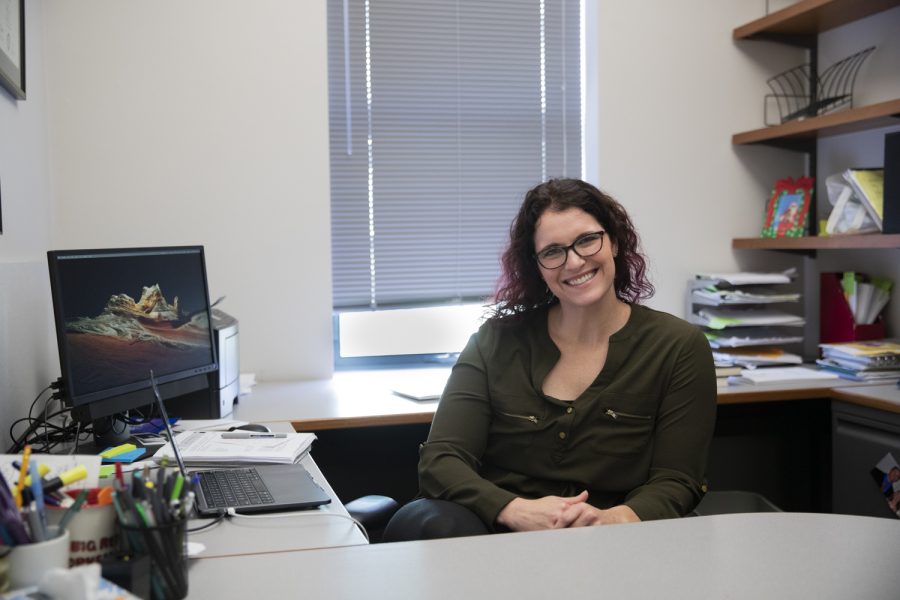UI professors study AI’s effect on office work
A $150,000 National Science Foundation grant went to a cross-disciplinary effort to learn the impact of AI on clerical jobs.
University of Iowa Professor Beth Livingston poses for a portrait in Pappajohn Business Building on Friday, Oct. 15, 2021. (Jerod Ringwald/The Daily Iowan)
October 17, 2021
A group of University of Iowa professors is looking into how the computerization of some office jobs, known as clerical work, can change the workforce.
The National Science Foundation spearheaded the investigation by granting a group of UI professors $150,000 to study how AI’s impact might reduce some skills and promote others in clerical work.
Beth Livingston, an investigator of the project and assistant professor of management and entrepreneurship at the UI’s Tippie College of Business, said people don’t consider that technological advancements target office jobs.
“We think of factories being automated, we think of coding work, et cetera, but we don’t think of receptionists or customer service or secretaries or clerical workers, having their work upended by AI or automation,” she said.
Livingston said the one-year grant is a precursor to a second, more focused grant. The research will be on the current literature of AI in the clerical workforce as well as the opinions of clerical workers via focus groups.
“This grant is meant for us to discover and uncover what issues might be going on,” she said. “One of the things that’s so important in science and research, social sciences no different than hard sciences, is our asking the right questions before you jump into any kind of grant.”
The grant will last one year and is a part of the National Science Foundation’s Future of Work at the Human Technology and Frontier program.
UI Professor of Industrial and Systems Engineering Priyadarshini Pennathur, the leader of the project, said she previously studied how computerization has affected health care office work.
Repetitive office tasks like scheduling, communication, and data analysis, Pennathur said, are especially prone to AI automation, since they require structured logic. These tasks that are normally performed manually, she said, are becoming computerized.
“It is almost like a personal customer service agent,” she said. “So it’s like if you can think of bots that would collect data, do a little bit of predictive analysis, and so on.”
Pennathur said her team wants to discover what alternative skills will be in demand when AI subsumes certain clerical tasks. For example, she said, if databases no longer require people to operate, a clerk might be trained in conflict resolution as a useful alternative skill.
“Clerical work is everywhere,” Pennathur said. “So if AI is going to impact that, the impact will be felt everywhere.”
Andrew Kusiak, a co-investigator and professor of industrial and systems engineering, said AI might change the face of offices for the better, just as it accelerated the success of manufacturing.
“I think that’s what this project is about, is identifying what would be the best technologies of artificial intelligence, what areas where it would produce benefits,” Kusiak said. “There’s this layer in business of decision-making, and this is the process to automate, to use tools, to use technology that will hopefully make decisions better than people are doing right now.”
Another perk of the grant, Livingston said, is that it is being researched early enough to potentially mitigate the negative effects of AI.
“We’re able with this grant to be forward-looking and proactive,” Livingston said. “… and to try to help those occupations to be able to adapt in real time,” Livingston said.














